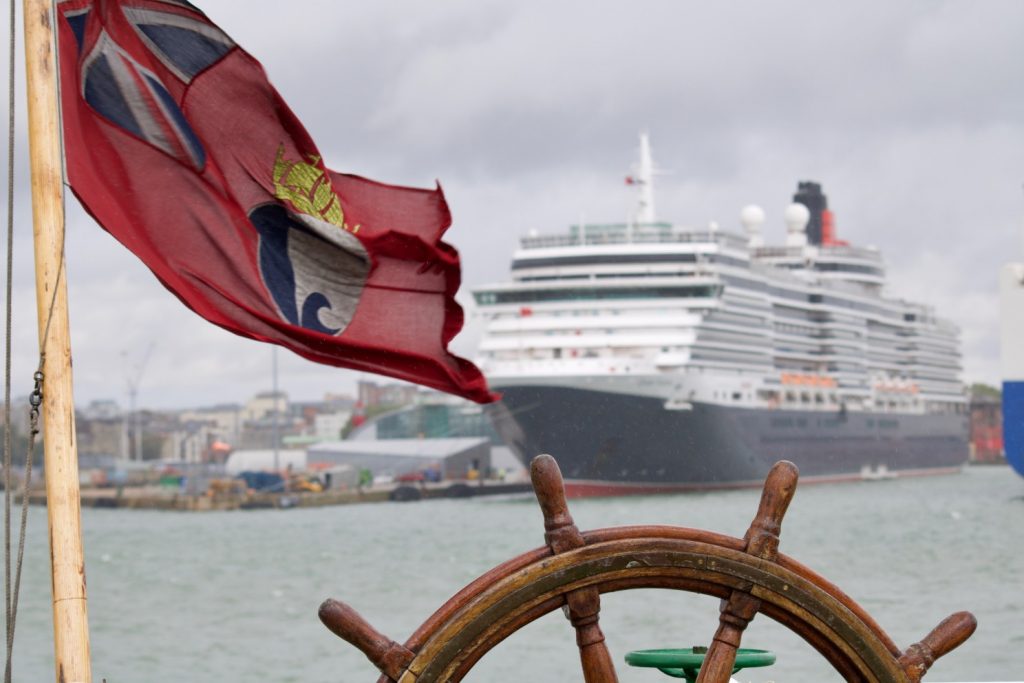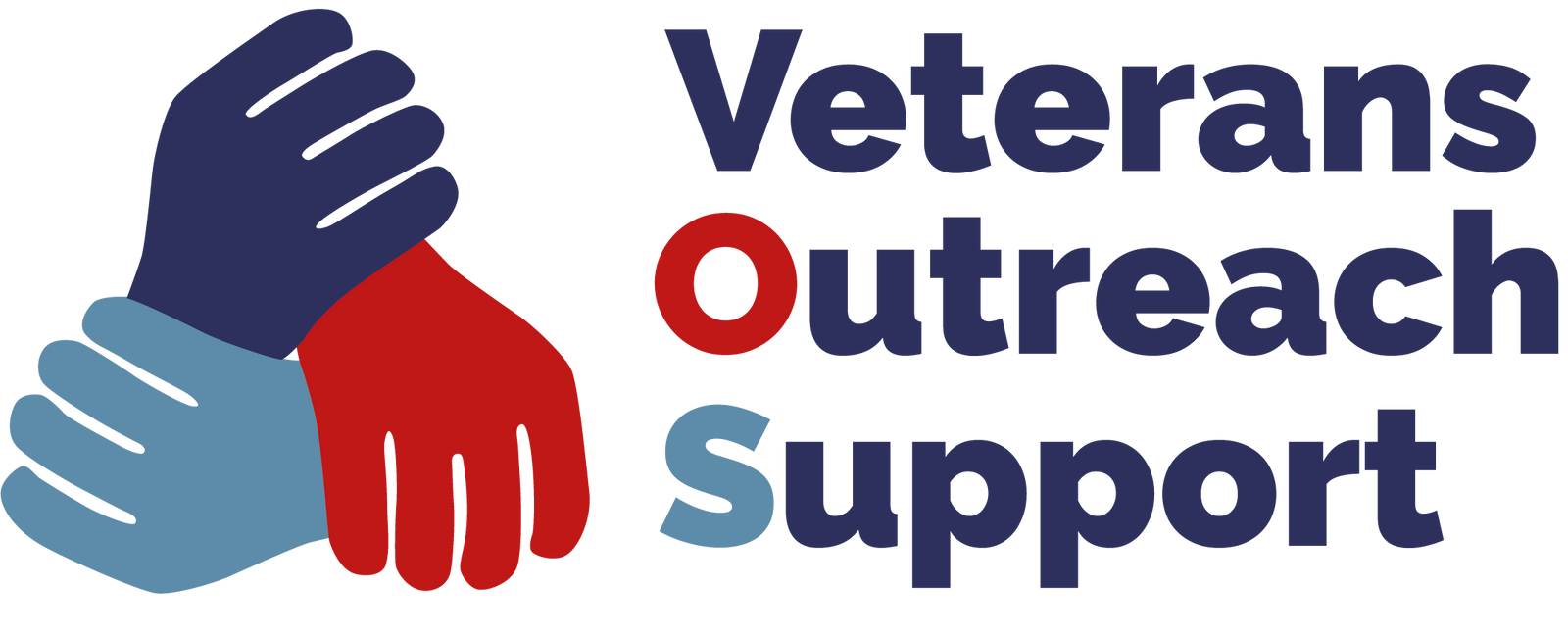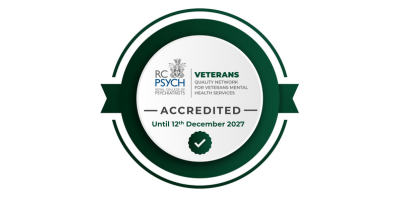Ian Millen is the Chief Executive of Veterans Outreach Support, a charity that serves veterans and partners of the UK Armed Forces and the Merchant Navy (MN) with welfare, wellbeing and mental health support, from its headquarters in the Royal Maritime Club in Portsmouth, UK. He is a 30-year veteran of the Royal Navy, as well as being active in maritime work for almost 46 years, in the RN, as well as in the private sector. He has also served as the President of the Propeller Club in London for seven years and on the Board of Trustees for Human Rights At Sea. In both of these areas, and now at VOS, Ian is passionate about increasing maritime awareness and championing the rights of all those who serve us all on the high seas.
We asked Ian what Merchant Navy Day means to him, so what follows is a personal reflection from the VOS Chief Executive, including a request for your help. Please read through, or skip to the end if you are too busy, to see how you can play your part in raising awareness of our Merchant Navy Day — whether celebrated once a year on 3rd September, or any other day…
By Ian Millen
Merchant Navy Day is a day that is worthy of putting my fingers to the keyboard, in recognition of a group of workers who are critical both in our day to day lives and in times of crisis. Who are they? The men and women of the British Merchant Navy, and those of many other nations, who work all year round, on the high seas and under many different flags. There’s a reason that I want to do this, both personally and as someone fortunate enough to work at Veterans Outreach Support (VOS). On an individual level, it’s because I have been fortunate enough to work alongside many seafarers, afloat and ashore, for over four decades. From my own 30 years of service in the Royal Navy, to another 15 in the field of maritime intelligence and security, where I have played a small part in helping seafarers to reduce risk, in countering piracy, terrorism and dangers related to regional conflicts. More importantly today, my reason for writing comes at an organisational level, based on the fact that almost fifteen years ago, the founders of our charity did the right thing in 2008, in recognising and pledging to support veterans of the Merchant Navy alongside those of the UK Armed Forces.

Our founders chose to do this because of the charity’s specific origins. An idea that came out of a pilgrimage to the Falkland Islands on the 25th anniversary of the 1982 conflict. They saw a need to set up a support organisation for veterans of 1982, as well as all other veterans, whether they had been in danger or not, given the fact that they had all spent time in uniform with a pledge to serve their nation. So, VOS began to deliver welfare, wellbeing, and mental health support to veterans of the UK Armed Forces, but they also recognised the critical role played by the many civilian mariners from the Merchant Navy, Royal Fleet Auxiliary and Royal Maritime Auxiliary Service, and without whom the operation could not have been mounted and sustained.

These officers and sailors faced the same dangers and so, our founders decided that should benefit from the same level of support VOS provided to UK Armed Forces veterans – a far-sighted and correct decision, even if the role and contribution was not as widely understood and recognised by the general public. Back in 1982, we became familiar with a new acronym STUFT (Ships Taken Up From Trade), but with some notable exceptions, the Merchant Navy did not receive the plaudits it deserved. This is perhaps best illustrated by looking at a passage from John Johnson-Allen’s excellent book ‘They couldn’t have done it without us’, where he characterises the focus of the British public during the conflict in 1982 as follows:

“The images of the Falklands Conflict recalled by the majority of people are those of the Royal Marines ‘yomping’ across open country, or the Sheffield or Sir Galahad on fire or paras with camouflaged faces. But very few people stop to think how 8000 troops arrived there – although some may have memories of the Canberra or the QE2, which were iconic ships in their own right. Seeing the familiar, military, aspects of the Falklands War, almost nobody gives any thought to how the troops’ equipment, food, stores and fuel, which kept the war going, arrived there. The Falkland Islands are 8000 miles away from Britain, and the only way to transport supplies there was by sea. To keep the military machine supplied, over 70 ships were needed. Merchant ships. And all the personnel on those merchant ships were volunteers who had the chance to decline to go. One senior marine superintendent, with his seagoing days long behind him, seeing one of his company ships off, was asked by his wife. ‘Would you have liked to be on board?’ He replied, ‘I would have sailed as cabin boy.’ That ship was the Atlantic Conveyor.”
Speaking as a veteran of 1982 myself, I certainly appreciate the contribution that those who sailed under the Red Ensign made to the success of this challenging operation, so far away from home in a decidedly inhospitable South Atlantic, but I wouldn’t disagree with the picture that Johnson-Allen paints of public awareness, nor would I disagree with the title of his book – we most certainly could not have done it without the seafarers of the Merchant Navy and Royal Fleet Auxiliary and, sadly, too many of their number also died or were injured.
My ship was replenished with food, fuel, and ammunition by the Royal Fleet Auxiliary and Merchant Navy. When it was damaged in combat, it was repaired by a specialist merchant ship. The task force casualties and some prisoners were also repatriated by merchant vessels and, on the day we mounted the amphibious operation to land troops ashore in San Carlos under heavy air attack, we did so alongside Royal Fleet Auxiliary and Merchant Navy vessels, including the distinctive SS Canberra and the North Sea Roll-on, Roll-off (Ro-Ro) ferry MV Norland, with both ships having the job of transporting troops to the landing zones.
Our spirits in the conflict were also lifted by the Merchant Navy, with mail, parcels from home and (very old) newspapers and magasines being transported over 8000 miles. All in all, you can see why anyone, like me, engaged in this conflict will have memories of the critical role played by the merchant navy, especially the many soldiers that were transported south on the iconic ocean liner QE2. But what about other times of crisis?
In wars of national survival, such as World Wars I and II, mariners sailing under the ‘Red Duster’ have faced terrible dangers, with the Atlantic and Arctic convoys being just two examples that are reasonably well known. In both these wars, success depended upon getting through supplies of troops and materiel, either to Britain or to the Soviet Union, in the campaign to liberate Europe. A little-known fact is that the percentage of merchant navy personnel lost in both wars was proportionately higher than that of the armed forces. At VOS, celebrating Merchant Navy Day 2022, we recognised the many sailors who lost their lives in these wars, by naming our skittles teams after two well-known Cunard liners, Lusitania and Lancastria that were lost in 1915 and 1940 respectively with terrible loss of life – a small tribute and mark of respect to all those who lost their lives during these wars. We had our Red Duster on hand, held by two former MN Mariners for the end of night photograph – something we have done at various other events this year as you can see below.
- Monthly Skittles ‘n’ Snorkers night at Royal Maritime Club.
- Weekly ‘Brew & Banter’ social group in Stubbington.
- Visit to Fort Nelson to see the Falklands exhibition.



Outside of times of crisis, let’s not forget that our world economy, and every nation, needs the men and women of the Merchant Navy in peacetime too.
From the ships that bring our gas, grain and goods that keep our people fed, our homes warm and our lights on, to the fishing fleets that engage in one of the most dangerous professions to help you enjoy that fish and chip supper treat at the weekend, men and women are plying the world’s oceans, far from their homes and families, working long hours and sometimes having little contact with loved ones.
It’s not all plain sailing, with seafarers facing dangers from piracy, armed robbery and the kind of risks that a bulk grain carrier might be facing, navigating a mine field under the watchful eye of Russian naval vessels in the Black Sea.
Add to this, the very real dangers that nature can muster, and you can see that being a seafarer is not without risk.

Why am I writing about this? In part, because I have had a four decade plus relationship with the sea and those that work upon it, and I feel strongly about their welfare and wellbeing. But, the main purpose is to raise awareness of the massive contribution that seafarers of the UK’s Merchant Navy and those of all other nations make to our daily lives, in the hope that we can all appreciate this when we next buy a smart-phone or eat fruit grown in a place thousands of miles away from the shop it is bought in. If oil and gas pipelines run dry, due to conflict in Ukraine, then it will be ships and our international seafarers that come to the rescue. I also hope to convince you to support some of the excellent seafarers’ charities in the UK (such as The Seafarers’ Charity, The Mission to Seafarers , International Seafarers’ Welfare & Assistance Network (ISWAN), Sailors’ Society, The Fishermen’s Mission, Human Rights at Sea (HRAS), and others) or, if you live in another country, whatever charity supports your own seafarers.
I have focused this article on the events of 40 years ago in the South Atlantic because it has a strong personal connection for me and, more importantly, it was this conflict that prompted the inclusion of Merchant Navy veterans as beneficiaries of VOS support – something that endures to this day with both service users and volunteers who have served under the Red Ensign. Sadly, to this day, there is still not enough recognition of the contribution made by the merchant navy. Just this week, I visited an exhibition of what the Falklands conflict meant to Portsmouth, and there was insufficient recognition of the contribution made by those under the Red Ensign.

Finally, let’s not forget to recognise the work of so many seafarers around the world. They truly are key and essential workers who are critical to the wellbeing of all the world’s nations. Whether they are transporting goods, oil and gas or raw materials, transporting passengers or fishing the world’s oceans, they are there for all of us. So, what can you do to help?
CALL TO ACTION
Despite the marking of one day each year, there is still too much ‘sea blindness’ in evidence. You can do your bit in just a few simple clicks.
- The more we share this message, the more people will see it.
- The more people that see it, the more help charities charities can give, and,
- The more help we give, the better the lives will be of our unsung heroes.
Please recognise our merchant navy brothers and sisters and show them that you care. They will be there in all weathers, in times of peace, tension and war, frequently very far away from their loved ones.
If you want to go further, then please do support The Seafarers Charity, or whichever maritime charity you choose – they all do meaningful and valuable work. It will mean a lot.
If you’ve managed to get this far, then thank you for your valuable time. Please check out the rest of our website for more information on what we do to support MN seafarers, and take a look at what Merchant Navy Day means to one of our merchant navy volunteers.
If you’re a veteran from the UK Armed Forces or the Merchant Navy (from any time of service) or a partner to one, VOS would love for you to join our community. We are here to offer our support: call us on 02392 731 767, visit an upcoming drop-in, or email admin@vosuk.org.
VOS is immensely grateful to the Armed Forces Covenant Fund Trust and the Royal Navy & Royal Marines Charity, as without their support and funding we would not be able to provide such a wide range of activities.








